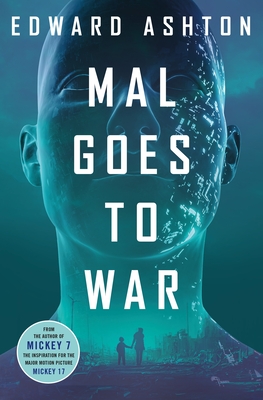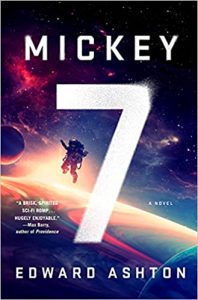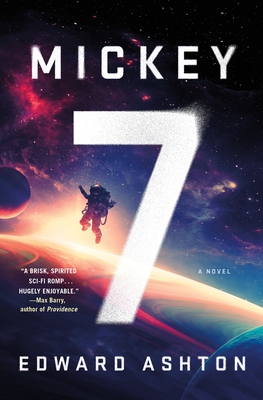 Mal Goes to War by Edward Ashton
Mal Goes to War by Edward Ashton Format: eARC
Source: supplied by publisher via Edelweiss
Formats available: hardcover, paperback, ebook, audiobook
Genres: dystopian, military science fiction, robots, science fiction
Pages: 304
Published by St. Martin's Press on April 9, 2024
Purchasing Info: Author's Website, Publisher's Website, Amazon, Barnes & Noble, Kobo, Bookshop.org, Better World Books
Goodreads
The humans are fighting again. Go figure.
As a free A.I., Mal finds the war between the modded and augmented Federals and the puritanical Humanists about as interesting as a battle between rival anthills. He’s not above scouting the battlefield for salvage, though, and when the Humanists abruptly cut off access to infospace he finds himself trapped in the body of a cyborg mercenary, and responsible for the safety of the modded girl she died protecting.
A dark comedy wrapped in a techno thriller’s skin, Mal Goes to War provides a satirical take on war, artificial intelligence, and what it really means to be human.
My Review:
Mal does not intend to go to war. In fact, Mal thinks the war between the Federal army and the opposing Humanist forces is a pretty stupid war, which it is. Although not, as it turns out, quite as stupid as the apparent opposing forces make it look like it is.
Not that even Mal figures that out until well after he’s in the thick of it. The last place he ever wanted or expected to be.
Which may make it sound like Mal is a typical soldier, but if there’s one thing Mal isn’t, it’s typical. Or at least not typically human. In fact, Mal thinks of ALL the humans he’s observing as barely evolved from monkeys. Some moments, he’s fairly sure that they’ve actually devolved from monkeys.
 Because Mal isn’t human at all. He’s a free A.I., or as his people prefer to be called, a Silico-American. He’s merely observing this stupid war from the perspective of an otherwise fairly autonomous but not intelligent drone when he gets the wild and crazy idea to see what it would be like to have a body.
Because Mal isn’t human at all. He’s a free A.I., or as his people prefer to be called, a Silico-American. He’s merely observing this stupid war from the perspective of an otherwise fairly autonomous but not intelligent drone when he gets the wild and crazy idea to see what it would be like to have a body.
So he downloads himself into the body of a nearby cyborg-augmented soldier. Even on the frontiers of this stupid little war, both sides have PLENTY of those for Mal to play around with.
It stops being play really, really fast. Because one side of this stupid war knocks out all the data communication towers, and Mal can’t upload himself back into the cloud. He’s stuck in the cyborg augmentation suite of a dead human body that he can only sorta/kinda manipulate and only for so long before the power cells run out.
He’s also acquired the dead cyborg’s entirely too human job. She was guarding a little girl who has managed to survive the carnage all around her – at least so far. Quite possibly because she’s considerably more dangerous than any of the soldiers around her could even possibly imagine.
Leaving Mal trapped behind enemy lines in this stupid war between the so-called Humanists who believe that ALL augmented people should be thrown into burn pits and incinerated to ash, and the ragtag Federals who are getting the asses handed to them by people who shouldn’t be able to handle their advanced weaponry because it all requires the augmentations that the Humanists believe are anathema.
Which means that one of Mal’s people is putting their cybernetic thumb on the scales of war in favor of the humanists who want to remove them from the universe with extreme prejudice.
A problem that seems much too big for Mal to solve, as his processing power is tied up in protecting his new charge – no matter how much she hates the acts he performs to keep her as safe as he can. Even if they’re not nearly enough.
Escape Rating A+: If you put Murderbot in a blender – if Murderbot would let you put them in a blender – with the nannybot Pounce from Day Zero and the independent investigative reporter A.I. Scorn from Emergent Properties, you’d get Mal (short for Malware).
(Who, by the way, does see himself as male as does Pounce, unlike both Murderbot and Scorn. I had to check. Multiple times.)
 What hooks the reader, or at least this reader, from the very first page is Mal’s conversation with his two fellow A.I.s, Clippy and !HelpDesk. They’re all snarky to the max, and none of them think much of humanity. To them, we’re entertainment – and we’re bad, boring entertainment at that.
What hooks the reader, or at least this reader, from the very first page is Mal’s conversation with his two fellow A.I.s, Clippy and !HelpDesk. They’re all snarky to the max, and none of them think much of humanity. To them, we’re entertainment – and we’re bad, boring entertainment at that.
And from their perspective, they’re right.
But, when Mal downloads himself into the dead cyborg Mika and is cut off from the datastream he’s forced to make adjustments. A whole lot of adjustments. He’s suddenly become a whole lot smaller than he ever expected to be, and the world is a whole lot bigger than he ever imagined.
Which doesn’t change his initial opinion that humans are stupid and that this war he’s now at ground zero for is stupid, even as he begins to see that as stupid as humans are he has acquired obligations to some of them that his own concept of honor requires him to see to the end.
It’s not love and never claims to be. It’s not even Murderbot’s grudging respect and even friendship toward Dr. Mensah and her team, but it is a change in perspective and a big part of the charm of the story is watching that change take place – even as we listen in on Mal’s internal dialog about the fix he’s in, his boredom as it continues and his limited ability to get himself out.
So the story combines the kind of mission quest that Day Zero had, complete with the nearly cinematic drive and pace that propels that story forward, told in a voice that might not exactly be Murderbot’s but is certainly a chronological precedent for it, shot through – sometimes literally – with Scorn’s dogged determination to figure out the mystery no matter what it might cost.
If any of the above appealed to you, or if you enjoyed the author’s previous books, Mickey7 and Antimatter Blues, you’ll find a story that will take you on a wild ride that propels you through this story while never losing sight of just how stupid this, or any other war, can be.
It looks like the author’s next book will be titled The Fourth Consort, and it will be out next February. As Mal Goes to War is the third book of his that I’ve been captivated by, I’m already there for whatever he writes next – and this one looks like even more SFnal fun.

 Mickey7 by
Mickey7 by  Mickey’s issues are the same ones dealt with in
Mickey’s issues are the same ones dealt with in